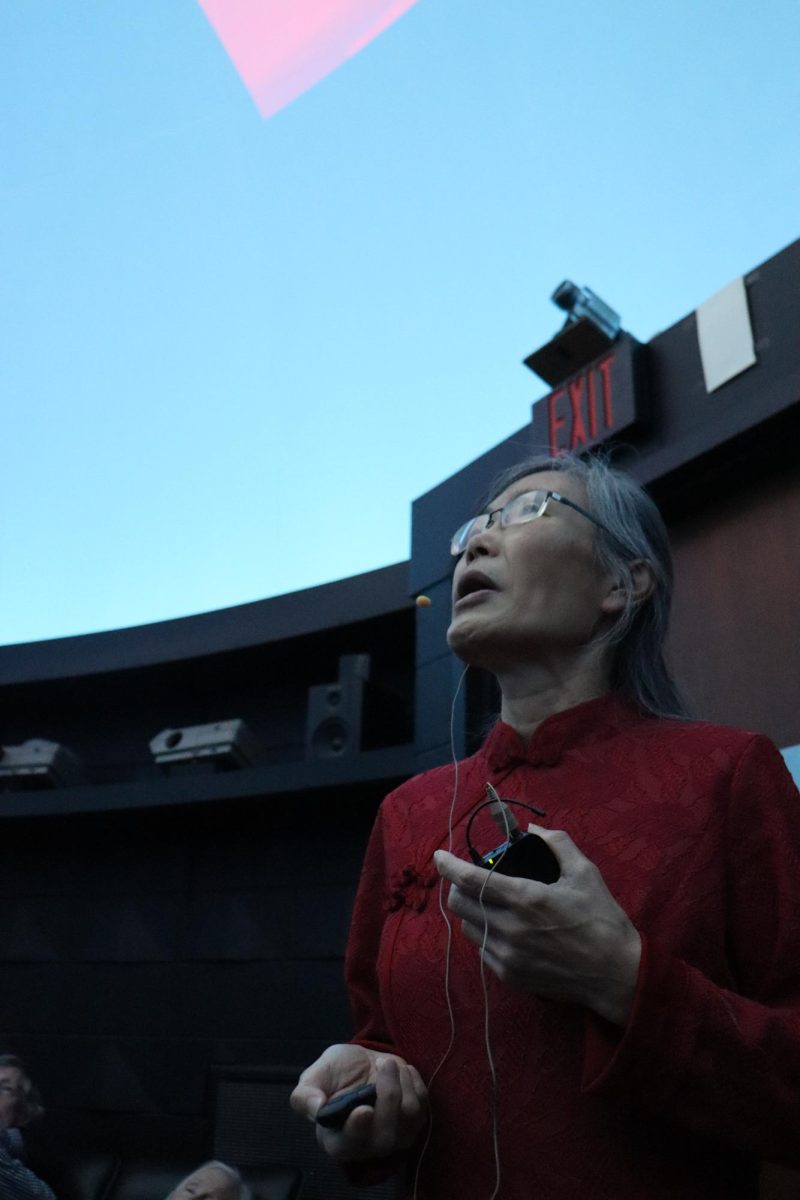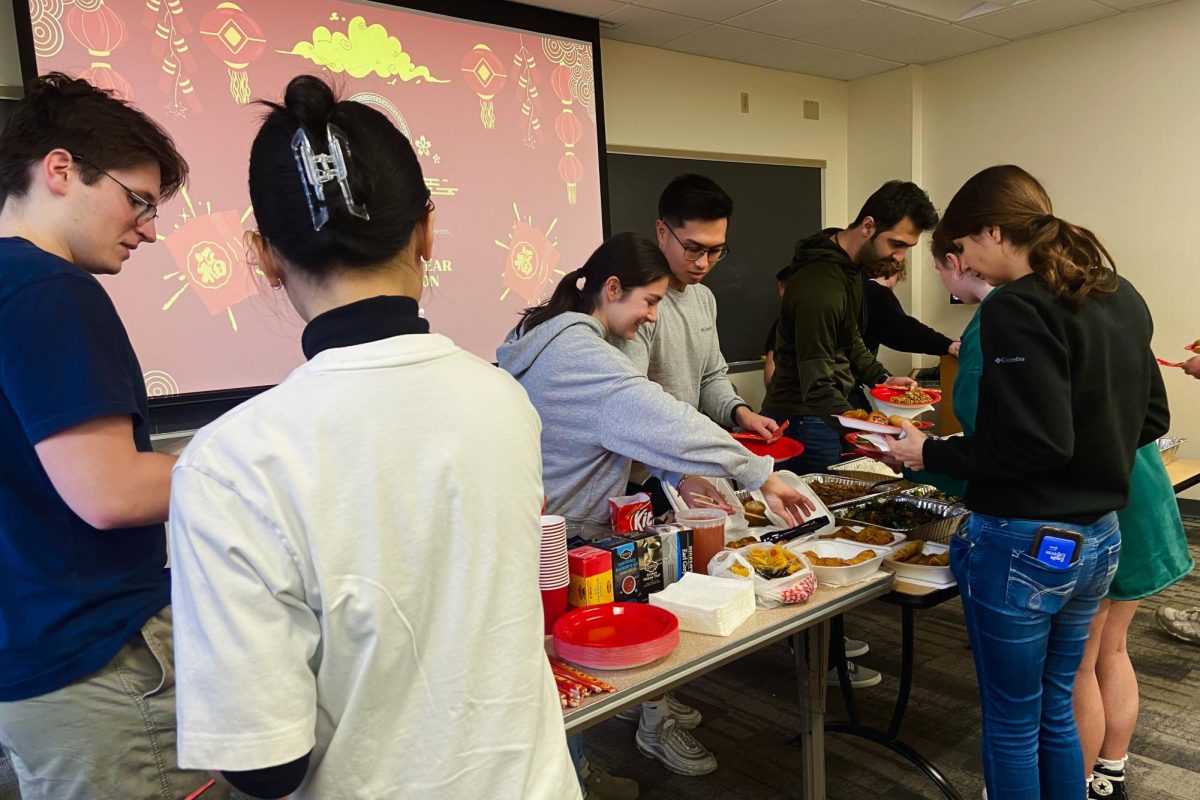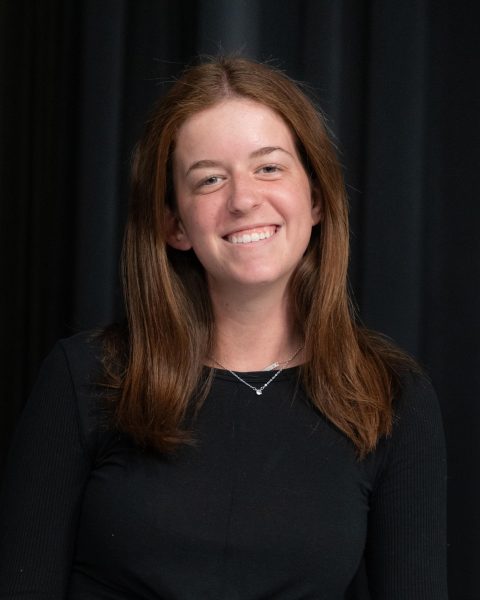The 2024 Lunar New Year marks the start of the Year of the Dragon, symbolizing great power, good luck and strength. For those born in the New Year, they will have personality traits of the dragon which are: charismatic, intelligent, confident, powerful and naturally lucky and gifted.
To mark the beginning the 15-day celebration, the University of Wisconsin-Milwaukee hosted their “Lunar New Year: Year of the Dragon” celebration Feb. 7 at the Manfred Olson Planetarium.
Beginning on Feb. 10, the Lunar New Year is based on the lunar calendar — or lunisolar calendar. Jean Creighton, director of the Planetarium, said some cultures around the world use the solar cycle, and some other cultures use the lunar cycle to determine the new year.
Pu Chen — guest speaker, and sister-in-law of Creighton, who grew up in Chengdu, China and came to the United States for graduate school — said, to determine the Zodiac sign of the year is based on an old Chinese system — that goes around every 60 years to determine the animal. This year it is the Dragon.
However, if you just use the lunar months, you will run a little short — meaning there will be a mismatch between the beginning of the year and the seasons. Because of that, cultures will often use the lunar and solar cycles together, so the beginning of the year is at a particular season.
Creighton added that when looking at the lunar cycle — which begins with the new moon — you wait 12 full cycles, which then brings you to the new lunar year — unless it is a year where you need to add an extra month because of the mismatch.
The event began at 7:00 p.m. with Chen walking through the Lunar New Year celebrations that happen before and after the New Year.
“We wanted our production team to create a presentation that incorporated Chen’s photographs of nature and her hometown — because she is also an accomplished photographer. We thought the food, music and lights following the celebration would be something that all people can enjoy and relate too,” Creighton said.
Creighton said that a lot of what Chen talked about was her culture and traditions that she learned from her father and grandmother. She also said that some of these traditions may not be practiced in the exact way right now in modern China, but it is allows people to learn about the way things were done.
Following Chen’s presentation, guests were able to enjoy food, make their own lanterns and enjoy “lucky money” — chocolate covered coins. In addition to those celebrations, guests were also invited to stargaze in the Planetarium.
“What was really interesting was that the stargazing was at the latitude of Chengdu, China — the city where Chen was born. Since it is hard to stargaze in a city, we were able to change the latitude slightly to go more to the countryside of Chengdu,” Creighton said.
When deciding what to talk about, Chen said it was challenging to figure out what to fit into such a short presentation.
“China is a big country,” Chen said. “There are a lot of things that happen around the New Year, so I tried to have a more general and abbreviated version of what goes on. I tried to gather things that give people an idea of what is going on.”
Creighton and Chen are sister-in-laws, which Creighton said allowed her to invite Chen to speak at the event.
“Her husband is my husband’s brother,” Creighton said. “I grew up in Greece and my father would say, ‘Isn’t it cool that the world is so small that I have a family from Sichuan (China). The world is so small, which makes it even more powerful to learn.”
To spread the word about the event happening, Natalie Stark, a member of the production and design team at the Planetarium, said it involved a lot of emailing and reaching out to student organizations, like the Southeast Asian American Student Center at UWM.
“I looked into what organizations and offices on campus that we thought would be interested in this event,” Stark said. “They are not only helping us with the celebrations, but they were excited to spread the word to their own communities within campus and Milwaukee.”
In addition, Creighton said when planning this event she hoped to incorporate this into the Planetariums series called “Our Shared Sky.”
“The idea is to emphasize that we are all on this precious, special planet and we would do well to protect and appreciate each other,” Creighton said. “This event is in the spirit to bring that idea to the forefront — that we need to understand each other better, and the more we understand celebrations the more we embrace other people.”
This story was written by Sophie Goldstein. She can be reached at [email protected].





